If you know the history – Celtic at birth, 50 & 100: Part 7 – July 1888
There were no games played in July 1888, as the new club in the east end of Glasgow made plans for their first competitive football season, due to begin the following month. However, there was an event that month which would produce a star player for Celtic beyond the turn of the century.
On 2 July 1888, Andrew McAtee was born in the village of Cumbernauld, just north-east of Glasgow. Raised in the mining community of nearby Croy, as was the mighty Jimmy Quinn, the young Andy developed as an exciting right-winger with Mossend Hibernian. On 12 September 1910, he signed for Celtic, making his debut two weeks later on a Monday night at Firhill, in a game which ended 1-1.
Willie Maley’s champions, that first great side of McMenemy, Quinn and Somers, were going for seven League titles in a row in 1910/11, however, a disappointing campaign would see them finish in fifth place, eleven points behind Rangers.
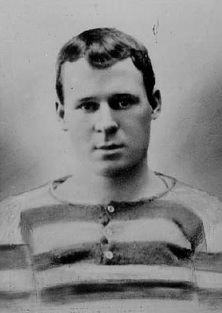
There was a first medal for the 22-year-old McAtee though, Celts winning the Scottish Cup with a 2-0 replay victory over Hamilton Academical, after a goalless first game, strikes from Quinn and another local man, near-namesake Thomas McAteer of Smithstone, Cumbernauld. Both matches were played at Ibrox, Hampden having ceased to be used for the showpiece game following the riot Cup Final between Celtic and Rangers, two years earlier. The following season, 1909/10, Thomas McAteer had captained Clyde all the way to the Scottish Cup Final, his side defeating both Glasgow giants before losing to Dundee in a second replay at Ibrox.
Andy McAtee would repeat his own Scottish Cup success in April 1912, as Celtic defeated local rivals, Clyde, by 2-0 at Ibrox, in front of 45,000. By this time he had a new partner at inside-right, a certain Patsy Gallacher. The career of the little man from Milford, Donegal, the Mighty Atom, would almost shadow that of McAtee, both starting and ending one year later. Patsy scored the first goal in that 1912 final, with the second coming from another Hoops legend, Jimmy ‘Napoleon’ McMenemy. Andy, Patsy and Celtic would also beat the Bully Wee in the final of the Glasgow Charity Cup at the present Hampden Park the following month, winning 7-2 on corners after a goalless draw!
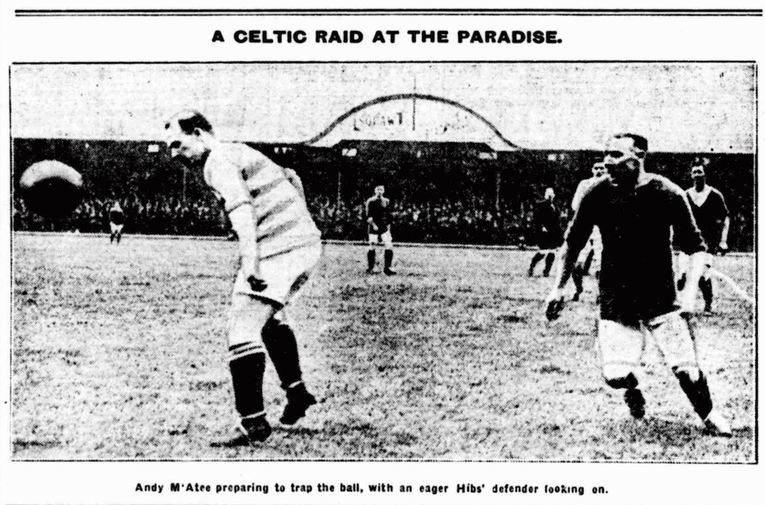
On 3 March 1913, Andy McAtee made his only appearance for the full Scottish international side, in a 0-0 draw with Wales at the Racecourse Ground in Wrexham. Playing on the right for the Welsh team that day was Billy Meredith, perhaps football’s first superstar. Born in 1874, the winger made over 300 League appearances for both Manchester City and Manchester United in an incredible 30-year career, playing his final match for City in March 1924, just 100 days shy of his fiftieth birthday.
Five days after Andy’s international debut, Celtic’s third bid to win a hat-trick of Scottish Cups was ended at Celtic Park in the quarter-final stage of the campaign by Hearts, just as they had done at Ibrox in the 1901 Final to deny the first attempt. Ironically, it would be against the Edinburgh side some 118 years later when that particular Cup bogey would be laid to rest, as the Hoops won the world’s first Treble Treble, on 25 May 2019.
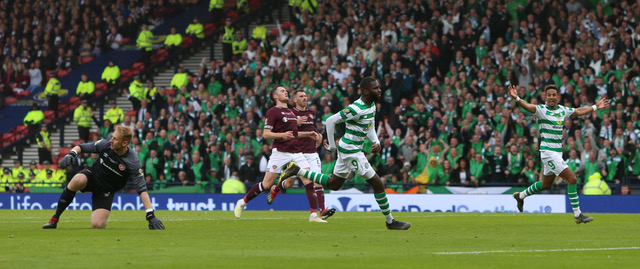
The infamous Riot final of 1909 had put paid to Celtic’s second attempt, both sets of fans storming the ground in protest at the lack of extra-time, following a second drawn game, angered by suggestions that the two clubs were complicit in the agreement to play a third match instead. That game was never played and instead, the old cup was withheld.

The only silverware of the the 1912/13 season was claimed two months later, as Celtic retained the Glasgow Charity Cup in front of 30,000 at Parkhead, the Bhoys coming from two goals down within six minutes to beat Rangers 3-2, thanks to strikes from Patsy Gallacher and Bernard Connolly, who scored twice. Four days earlier, the semi-final victory against Third Lanark at Cathkin had marked the debut of legendary Celtic goalkeeper, Charlie Shaw.
The following season saw Celtic complete their third League and Cup double, finishing six points clear of Rangers and defeating Hibernian 4-1 in the Scottish Cup Final replay, after a goalless draw, with doubles from John Browning and Jimmy ‘Sniper’ McColl.
Incredibly, Celts would then have to wait exactly 40 years for their fourth double, when Jock Stein would captain Jimmy McGrory’s side in 1954. McColl was also on the scoresheet in May 1914 as Celts added a third trophy with a 6-0 victory over Third Lanark at Hampden in the final of the Glasgow Charity Cup, our third successive victory in this competition. The same side had beaten the Hoops in the semi-final replay of the Glasgow Cup at Cathkin the previous October, thus preventing the very real possibility of a first-ever ‘clean sweep’.
Although the Scottish Cup competition would then be suspended until 1919, due to the outbreak of war, the League did continue, Celts winning four-in-a-row between 1914-17, whilst they extended their run of successive Glasgow Charity Cups to seven by 1918, with victories over Partick Thistle (twice), Queen’s Park and Rangers. There were also two Glasgow Cup Final wins in 1916 and 1917, with victories over Rangers and Clyde, as Andy McAtee’s medal haul became increasingly impressive.
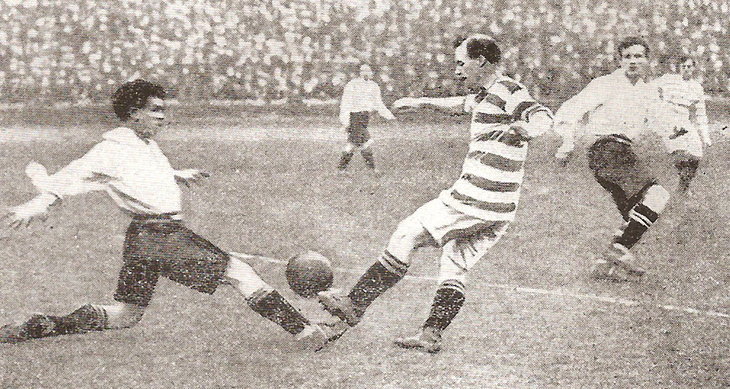
He had missed out on one of the above medals, the Glasgow Charity Cup of 1917/18. Having worked in the reserved occupation of mining for the first three years of the conflict, whilst playing for Celtic on the Saturday, Andy was then conscripted into service, based in Italy with the Royal Field Artillery from April 1918 until January 1919. He returned in time to celebrate another League championship success, in May of that year, Celtic taking the title by a point from Rangers.
Season 1919/20 saw a silverware double with both the Glasgow and Glasgow Charity Cups won with victories over Partick Thistle and Queen’s Park, respectively.
Both trophies were retained the following season, the Charity Cup with a 2-0 victory over Rangers and the Glasgow Cup with a single-goal win over Clyde at Celtic Park in October 1920, with Andy McAtee’s strike just before half-time proving to be the matchwinner, in front of 40,000 fans. And the winger struck another vital goal in April 1922, his late header rescuing a point against Cup-holders Morton at Cappielow, in a game marred by violence, as Celtic again won the title by a single point.
There would be one final medal for the veteran Celt. The Hoops Scottish Cup campaign began on 13 January 1923 in Lochgelly, the local United beaten 3-2 on their own ground (there is an unique video clip on this which can be accessed HERE). Here are some stills from this video, which is a must watch…
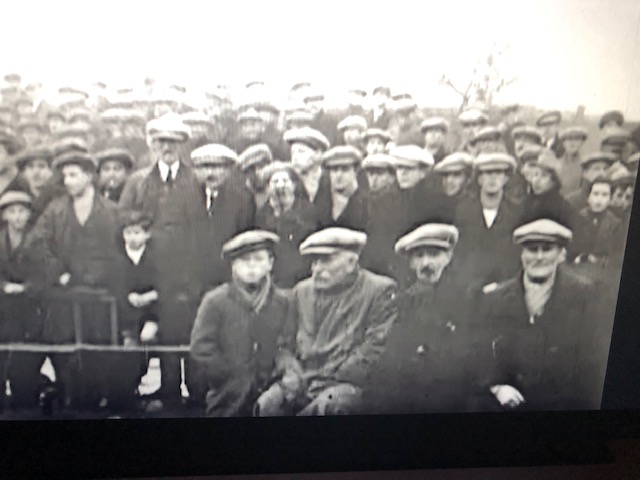
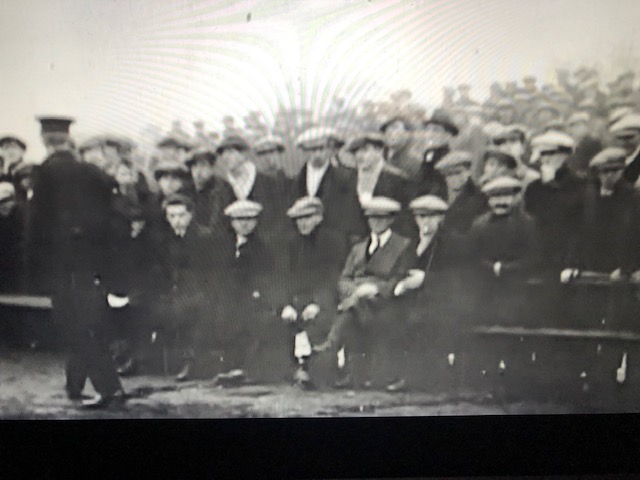
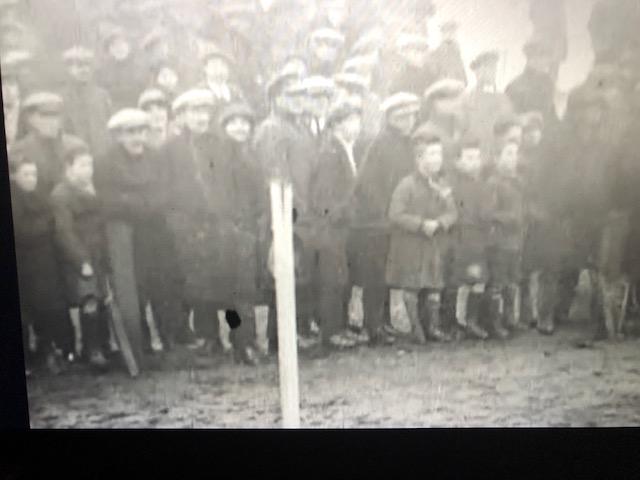
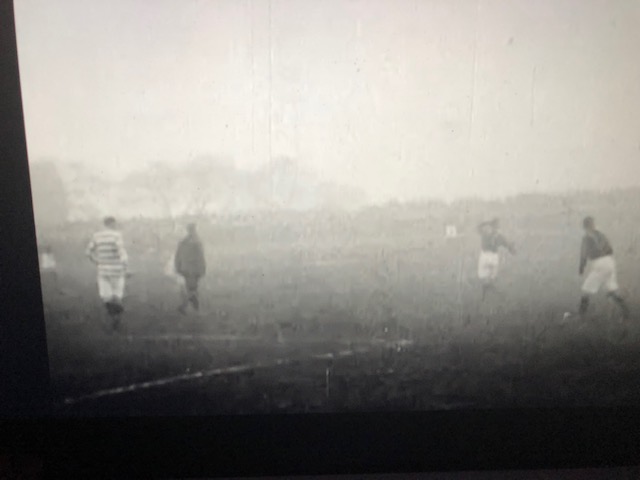
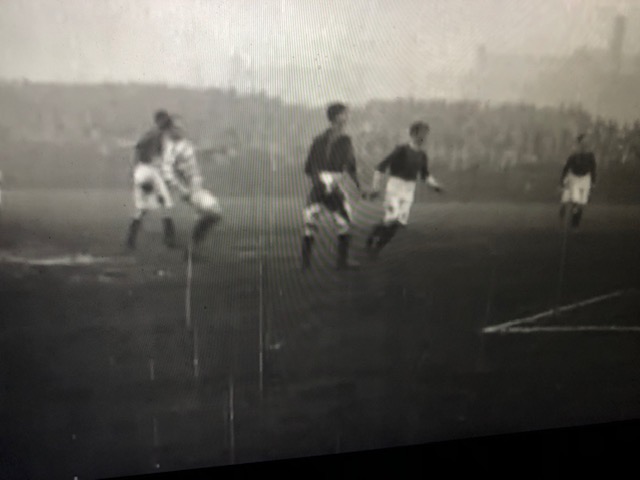
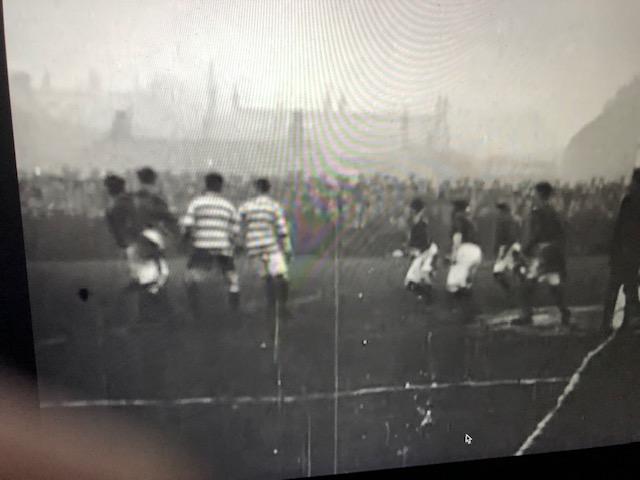
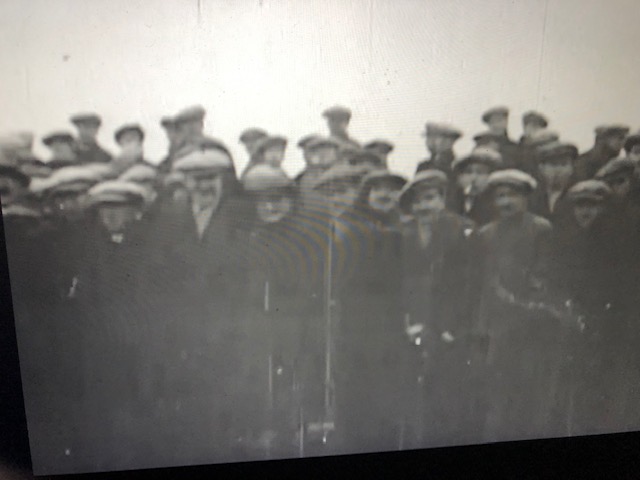
The following week saw the Celtic debut of a certain James Edward McGrory in a 1-0 League defeat by Third Lanark at Cathkin, the Garngad Bhoy replacing the legendary Patsy Gallacher to partner McAtee on the right flank. Further home cup wins against Hurlford, East Fife and Raith Rovers took Celtic through to a semi-final against Motherwell at Ibrox, in front of 75,000. Goals from Joe Cassidy and Andy McAtee then set up a final meeting with Hibernian, at Hampden Park on 31 March 1923. Cassidy again was on target to give the Bhoys a tenth Scottish Cup success, equalling the record set by Queen’s Park in the previous century.
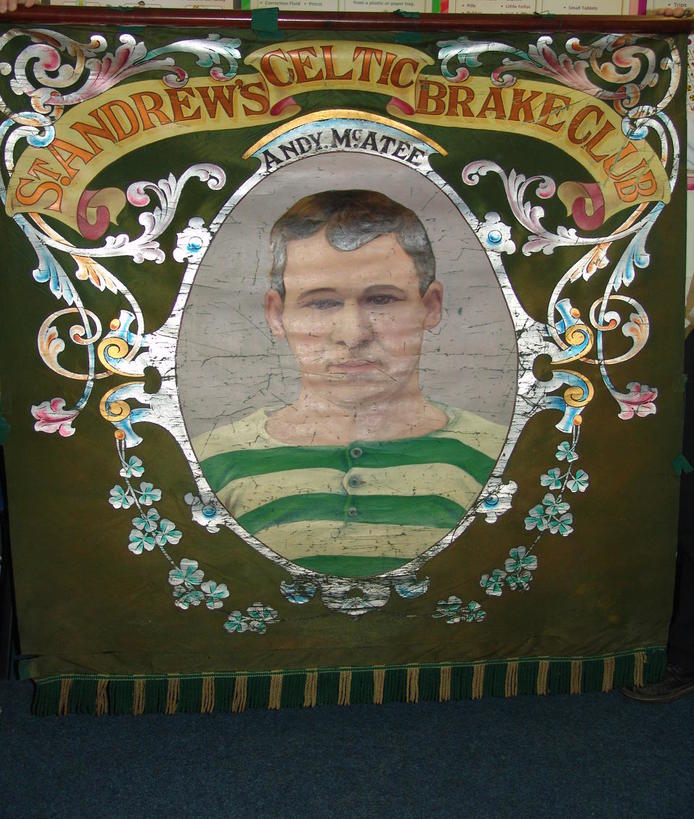
After 14 trophy-laden years at Parkhead, Andy McAtee left Celtic in 1924, joining his old goalkeeping colleague, Charlie Shaw, at New Bedford Whalers, Massachusetts in the American Soccer League. With 6 League titles and 4 Scottish Cup medals, he is one of the most decorated of the early Celts (He also won a further 10 winner’s medals between the Glasgow and Glasgow Charity Cups). With 407 League appearances, only ten other Celts are ahead of him in the all-time list. He hit 65 League goals, also playing 32 ties in the Scottish Cup, where he managed two goals. A fantastic Celtic career.
Andy McAteer passed away in Condorrat on the outskirts of Cumbernauld on 15 July 1956, aged 68. He is buried in the same Kilsyth cemetery as another Hoops legend, Jimmy Quinn.
Hail Hail,
Matt Corr
Follow Matt on Twitter @Boola_vogue
Thanks and credit as always to the folk behind the wonderful Celtic Wiki, an invaluable resource for Celtic historians.


